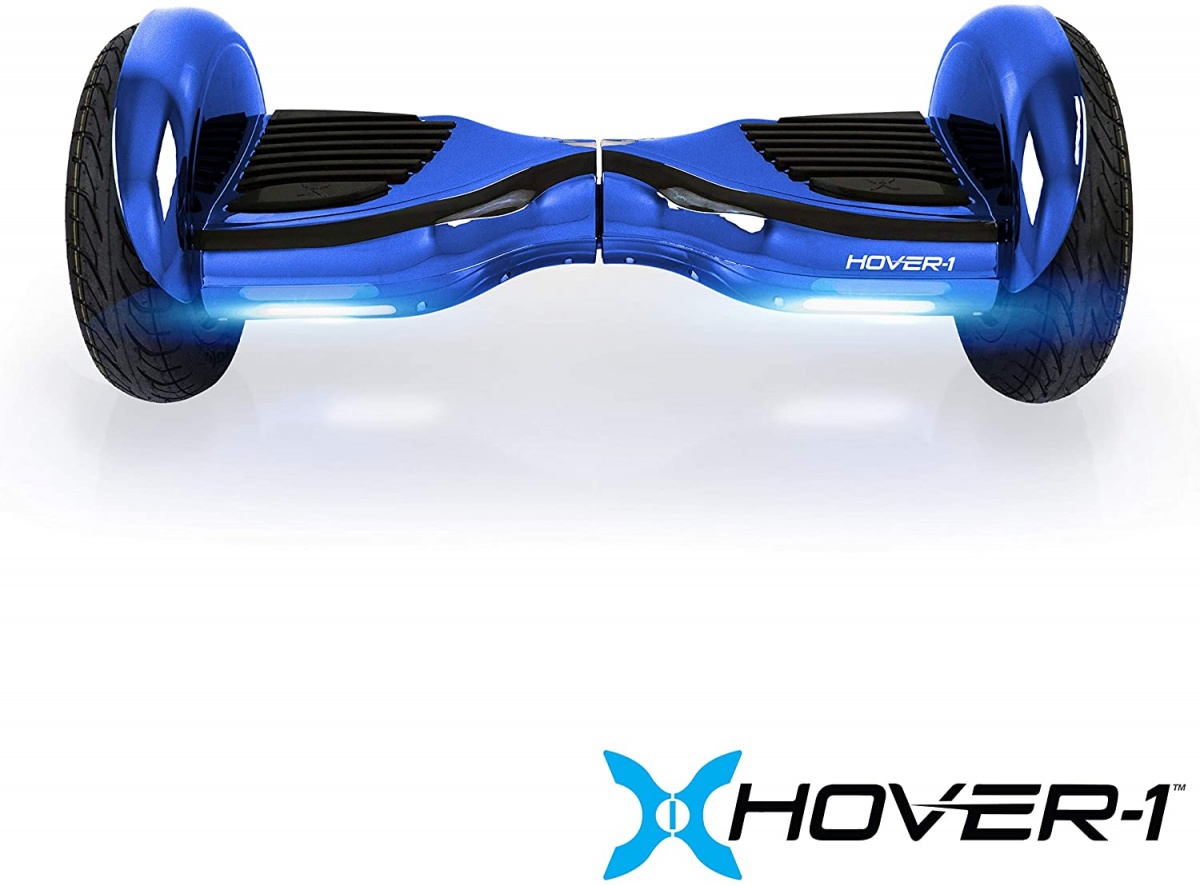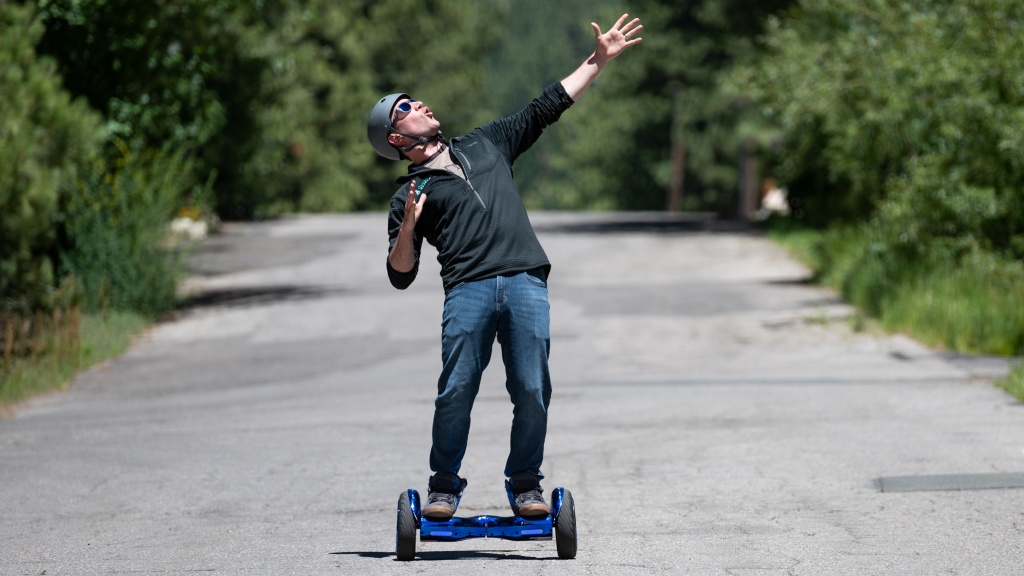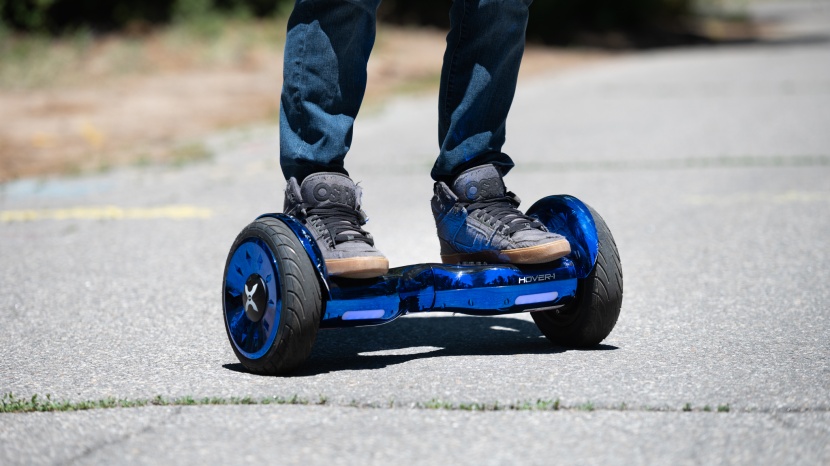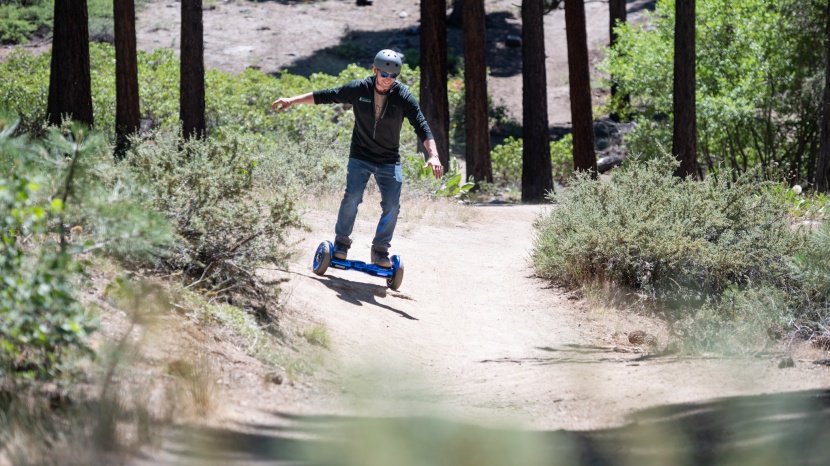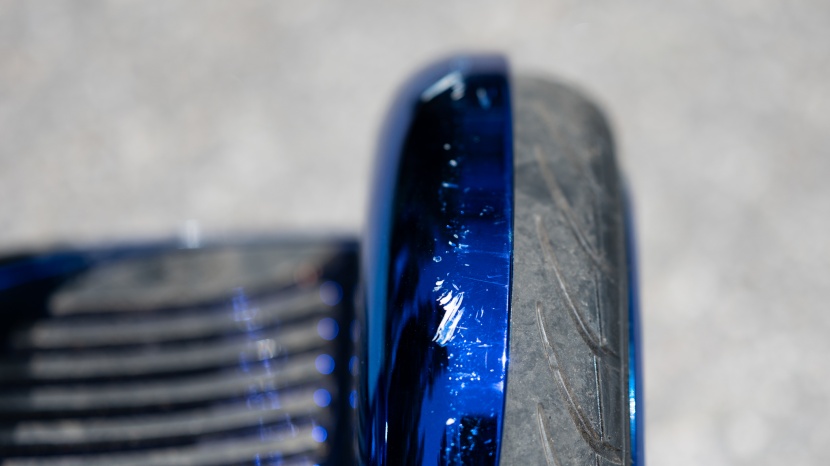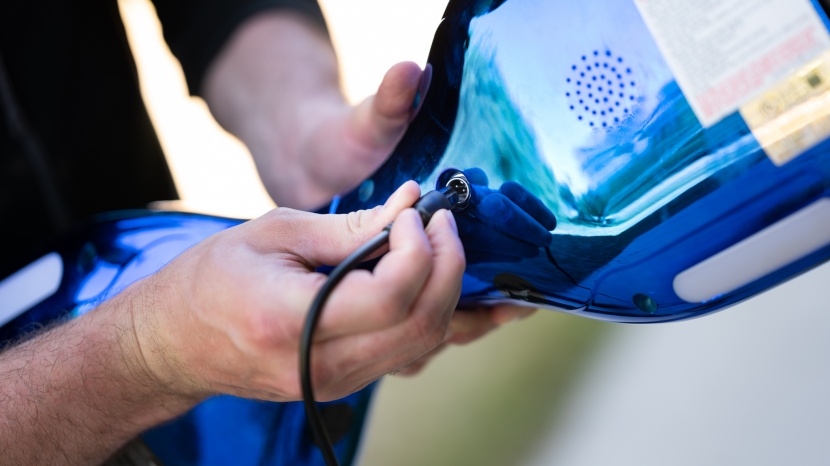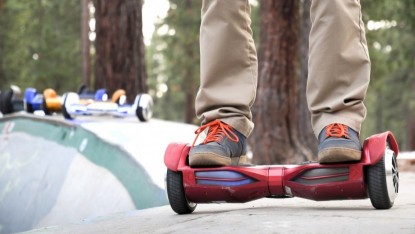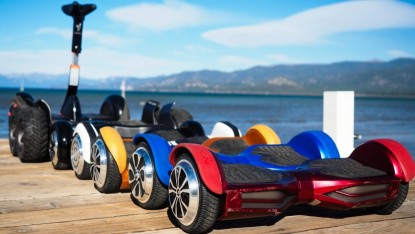Hover-1 Titan Review
Our Verdict
Compare to Similar Products
 This Product Hover-1 Titan | |||||
|---|---|---|---|---|---|
| Awards | Best Hoverboard For Most People | Best Value and Entry-Level Option | |||
| Price | $270 List $269.99 at Amazon | $230 List $173.88 at Amazon | $150 List | $180 List | $180 List $99.99 at Amazon |
Overall Score  |
|||||
| Star Rating | |||||
| Bottom Line | A low cost board with a battery life that rivals the highest ranked models | This affordable board has comfortable foot pads and decent maneuverability but can't cut it off-road | Despite this board's so-so durability, its budget-friendly price and beginner-friendly ride will maintain appeal for certain riders | This board offers decent stability for new riders but lacks standout features such as Bluetooth connectivity | This board is fun to ride indoors, but its inconsistent performance on any outdoor terrain limits riding freedom |
| Rating Categories | Hover-1 Titan | Hover-1 Chrome 2.0 | XPRIT Classic | Swagtron Swagboard... | Hover-1 Helix |
| Fun Factor (50%) | |||||
| Outdoor Capabilities (20%) | |||||
| Support (20%) | |||||
| Battery (10%) | |||||
| Specifications | Hover-1 Titan | Hover-1 Chrome 2.0 | XPRIT Classic | Swagtron Swagboard... | Hover-1 Helix |
| Measured Run Time | 110 min | 107 min | 75 min | 37 min | 44 min |
| Measured Weight | 21.8 lbs | 15.2 Ibs | 13.1 Ibs | 14.7 Ibs | 13.1 Ibs |
| Measured Speed | 8 mph | 7 mph | 6.5 mph | 6.3 mph | 7.7 mph |
| Measured Range | 10.6 mi | 3.3 mi | 4.5 mi | 2.4 mi | 3.68 mi |
| Measured Charge Time | 3 hours | 4.5 hours | 4 hours 41 minutes | 3+ hours (manufacturer says not to charge longer than this) | 6 hours |
| Weight Limit | 265 lbs | 220 Ibs | 165 lbs | 185 lbs | 160 lbs |
| Wheel Size | 10" | 6.5" | 6.5" | 6.5" | 6.5" |
| Bluetooth | Yes; app and music | Yes; app and music | Yes; music | No | Yes; app and music |
| Warranty | 90 days | 90 days | 90 days | 5 years (battery) 1 year (manufacturer) |
90 days |
Our Analysis and Test Results
The Hover-1 Titan has a prolonged battery life and democratic price tag. Yes, we like the color options and its relatively smooth ride, however, it is the fact that the board's run time is competitive with models more than twice its cost that earned our admiration.
Fun Factor
This metric looked at aspects of board performance that make these boards appealing. Namely, this was speed, Bluetooth connectivity, app features, onboard speakers, color options, weight, and aftermarket accessories. Additionally, we rated the “fun feeling” that the board rendered when being put through our obstacle course. The Titan delivered a so-so performance in all but the Bluetooth evaluation. The connectivity between the smartphone app and the board allows one to check battery levels, set riding modes, and play music through the onboard speakers.
To be frank, this model is not as fun as some of the others we've tested. In large part, this is due to the weak electric motors. Granted, our test team is composed of larger adults. That said, the board felt pretty weak and was not as fun to zip around on as many other models. Additionally, the top speed we could comfortably sustain on the Titan was 8 miles per hour. While this speed is about average for the class, it's a better speed for younger or less experienced riders.
Outdoor Capabilities
While the assumption is that the majority of hoverboarding will be done outside, this metric fully assesses a product's ability to traverse inconsistencies in terrain. We split this analysis into four sub-metrics: grass, hard-packed dirt, cracks, and bumps. Overall, the Titan is too underpowered to excel in these evaluations. However, we were impressed with the above-average shock absorption that the large wheels displayed when passing cracks in the road.
In our incline tests, we took the board on a 750-foot climb up a 14% grade, turned around, and descended the same slope. In utter defiance, the Titan barely passed the starting zone, refusing the climb altogether. The board did okay on grass and hardpack, but if that's the kind of terrain you're looking for, there are boards better equipped for the increased demand.
As mentioned above, this model was pretty darn smooth when traversing cracks in the road. However, the bumps and door thresholds did not pass underfoot without notice. The board will manage steep obstacles, but a bit of courage and speed is required.
Support
Support is an unusual metric, though necessary for these machines. While we wouldn't say that these products are prone to failing, they do frequently require the user to reach out to customer support for troubleshooting. The help we received from the Hover-1 folks was timely and effective.
We also included an evaluation of how much wear and tear a board shows at the end of our standardized testing regime as burley boards require less interaction with the manufacturer. The rounded finders on the Titan are exposed to damage if the unit flips over, and the shiny paint shows scratches even if superficial. In addition to the scratching, we experienced a rubbing issue where the finder contacted the wheel. While minor, we used this issue as the grounds for our email to the manufacturer. The company does not provide a phone number, but our email was answered the same day we sent it.
Battery
The battery evaluation is where the Titan shined the brightest. Our assessment of the product's battery is based on the range, run time, and recharge time. While the recharge time was relatively average at 3 hours, the run time was surprisingly long at just shy of 2 hours. The Titan also ate up a whopping 10.6 miles of flat ground. An impressive feat that many significantly more expensive models cannot approach.
To test the range of each model, we use a standardized course of known length on flat even ground. We then cruised the loop at as close to top speed as possible until the battery died. This test is more representative of how a commuter would use these machines. Conversely, the run time test makes use of a built-to-purpose obstacle course that incorporates tight turns, pirouettes, as well as back and forth maneuvers. This evaluation gave us a good idea of how long one can play on the board.
Charge time was simply a measure of the time required to recharge a fully depleted battery. The two previously described tests provide the perfect opportunity. Once the battery was depleted to the point that we could no longer ride it, we plugged it in and timed how long it took for the light on the charger to turn green, indicating a fully completed recharge.
Value
In many cases, value is a simple appraisal of the cost of an item in comparison to its quality. The Titan is unusual in that its performance matches its price with one glaring exception: battery life. The prolonged run time and range that the battery renders make this puppy a good value.
Conclusion
The Hover-1 Titan had mixed test results. It is a lower-cost board that, for the most part, performed as expected. However, this hoverboard has a substantially long battery life. While the color options are nice and it has a comfortably smooth ride, the run time made this board stand out in our lineup. So, if you're looking for a long-lasting hoverboard without the sticker shock, this one is worth a spin.


